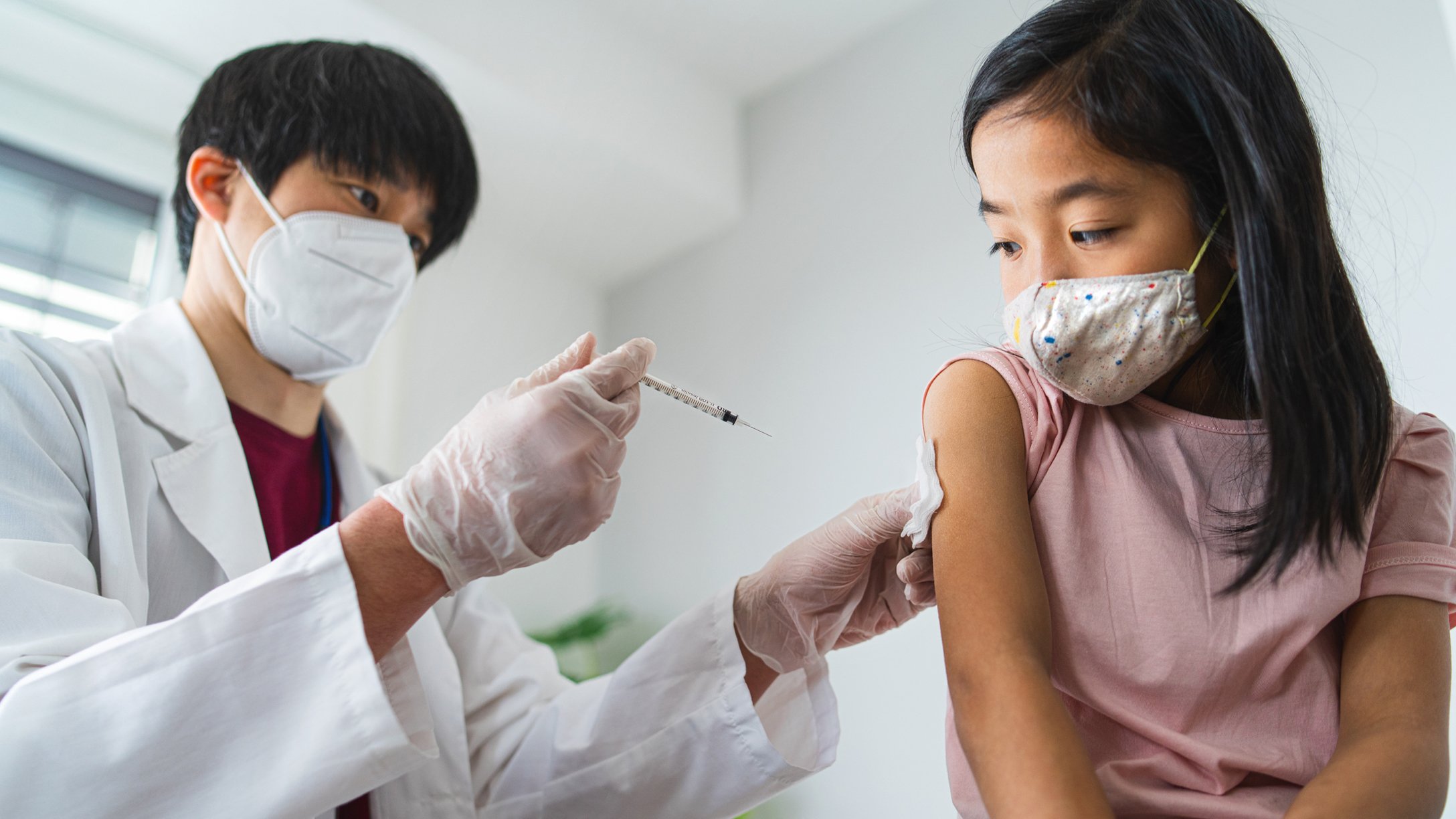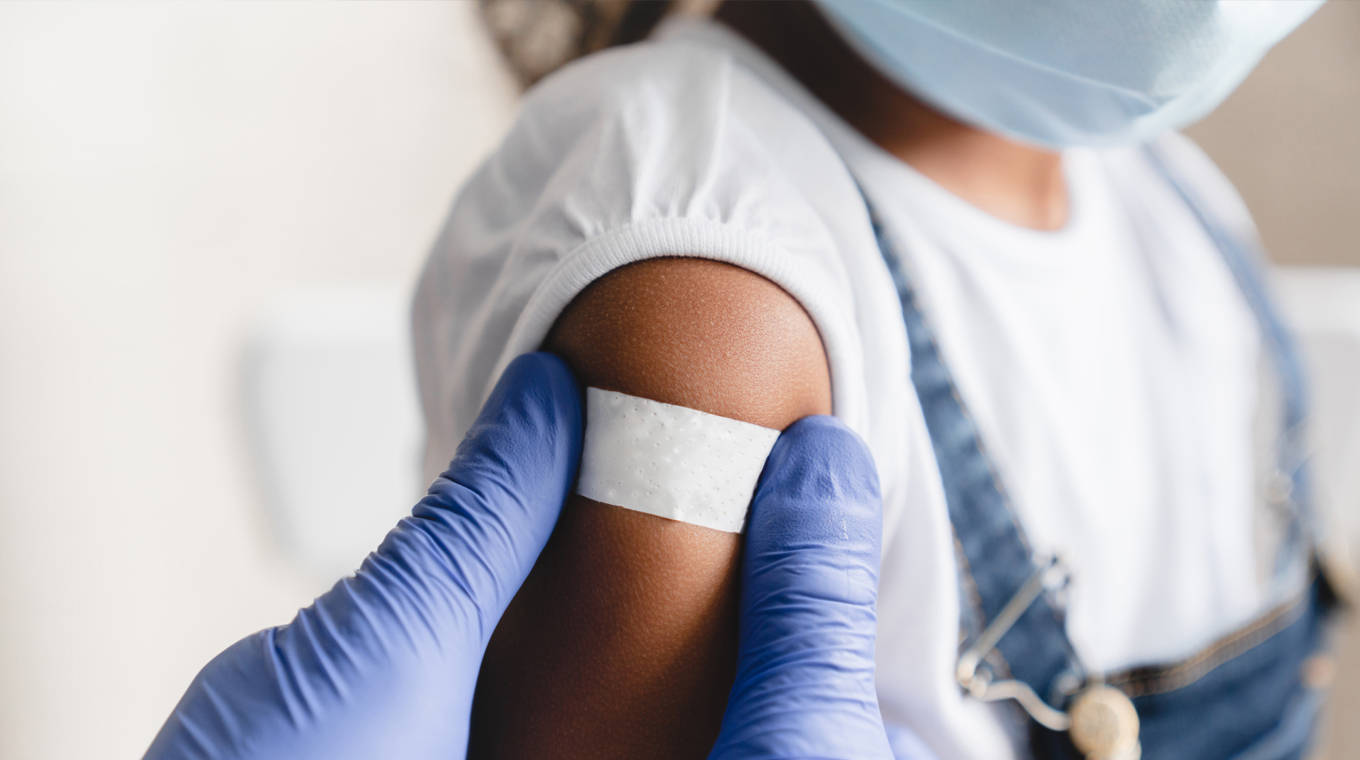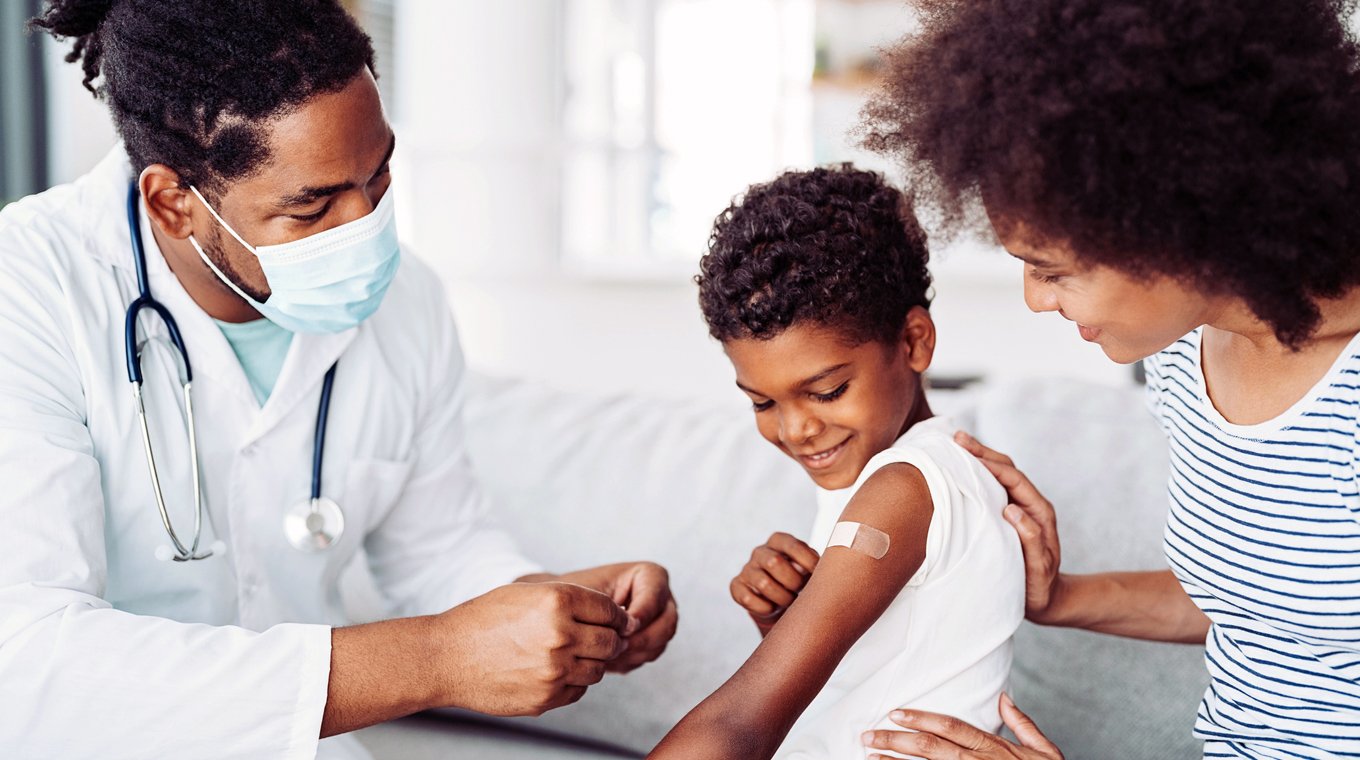
In this article
With so many illnesses to think about these days (we’re looking at you: COVID, RSV, and flu), it’s becoming increasingly important to get vaccinated. You’ve probably seen terms like “vaccinate” and “immunize” being used interchangeably, but what is the difference between vaccination and immunization (and is it actually important)?
What is vaccination? What is immunization?

According to spokesperson for the American Academy of Pediatrics and pediatrician Steph Lee, MD, MPH, FAAP, the terms immunization and vaccination are technically different.
“Immunization is how someone becomes protected against a disease through vaccination, whereas vaccination is the act of getting a vaccine into the body to induce protection from a disease,” she explained to Mom.com. The Pennsylvania-based doctor added that often in clinical practice, “you will hear doctors using both terms to mean the same thing since the same end goal occurs: protection from an infectious disease.”
In other words, immunization is a process of becoming protected against a disease, whereas vaccination is an act of getting the vaccine into your body. You can become immune to an illness by getting infected with it (like childhood chicken pox) and recovering, but you do run the risk of dying or suffering the full effects of the disease. You can also become immune through vaccines — though it can take a series or multiple vaccinations (inoculations) for your body to become fully immune to a specific disease.
How do vaccines help build immunity?

To understand how vaccines work, we will need a quick refresh on how our immune system operates. In short, the immune system is our body’s way to defend us against pathogens like bacteria, viruses, fungi, or parasites.
When it runs across an antigen (something our body doesn’t recognize as “our body”) or a pathogen, our immune system gets jolted awake. Once it meets a new pathogen for the first time, our immune system stores its unique information (like antigens) so in the future, it will know how to fight it.
Vaccines are a way for our bodies to be introduced to these pathogens, teaching our bodies how to recognize these invaders, without ever being infected. In other words, it’s like a boot camp or driver’s ed for our immune system. Vaccines teach our bodies in a safe, contained manner how to recognize the “bad guys” without hurting us the same way the infectious disease would have.
For some diseases, our immunity can decrease over time. For example, even after we are fully vaccinated, it’s recommended that we update our tetanus shot once every ten years. If you’re pregnant, doctors often recommend you get the Tdap every pregnancy (even if you’re not due for a booster) in order to pass on some immunity and protection to your newborn before they receive their scheduled immunization shots.
For other illnesses like the flu, you will need to get an updated shot every flu season. The influenza virus mutates and changes so quickly that in any given year, there may be multiple strains of flu — different from the year prior — so you’ll need to get an updated flu shot to properly protect you. Even then, you may still get the flu, but it generally is much milder than what you would’ve experienced without the shot.
Why it's important to get vaccinated and boosted

In general, vaccinations are important because it protects individuals and communities from infectious diseases. “Through years of medical research and science, we have figured out that vaccination is a safe way to gain protection from an infectious disease and reduce complications without having to suffer from the actual disease,” explained Dr. Lee.
However, not only does it protect you and your body, getting vaccinated and the appropriate boosters helps provide herd immunity. Herd immunity occurs when enough of the population is vaccinated against a particular disease that it helps reduce the risk for people who are immunocompromised or cannot get vaccinated for a particular reason. If a disease cannot find enough hosts to take root, it cannot spread as easily or quickly, thereby effectively rendering the disease unspreadable.
Keep in mind that just because there may have been herd immunity at one point, if people stop getting vaccinated for that disease, the herd immunity drops and it allows for the disease to resurge and perhaps mutate beyond what our current vaccines can protect. Getting you and your children vaccinated protects not only your own immediate family and friends, it also helps protect against many vulnerable populations like the elderly or immune compromised.
“We don’t mess around when it comes to vaccines. We are fully caught up and we get flu shots every year,” Los Angeles-based mom Joyce Park told Mom.com. “This year we got ours with the Bivalent Covid Booster as soon as we could get an appointment.




